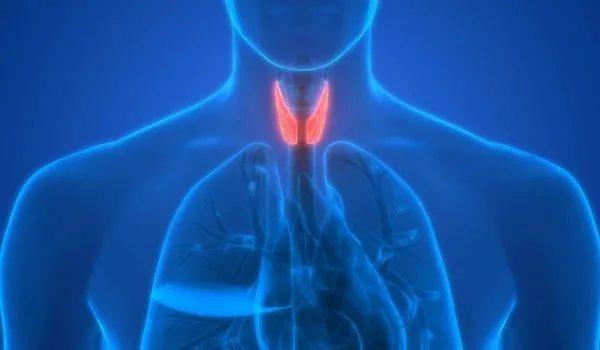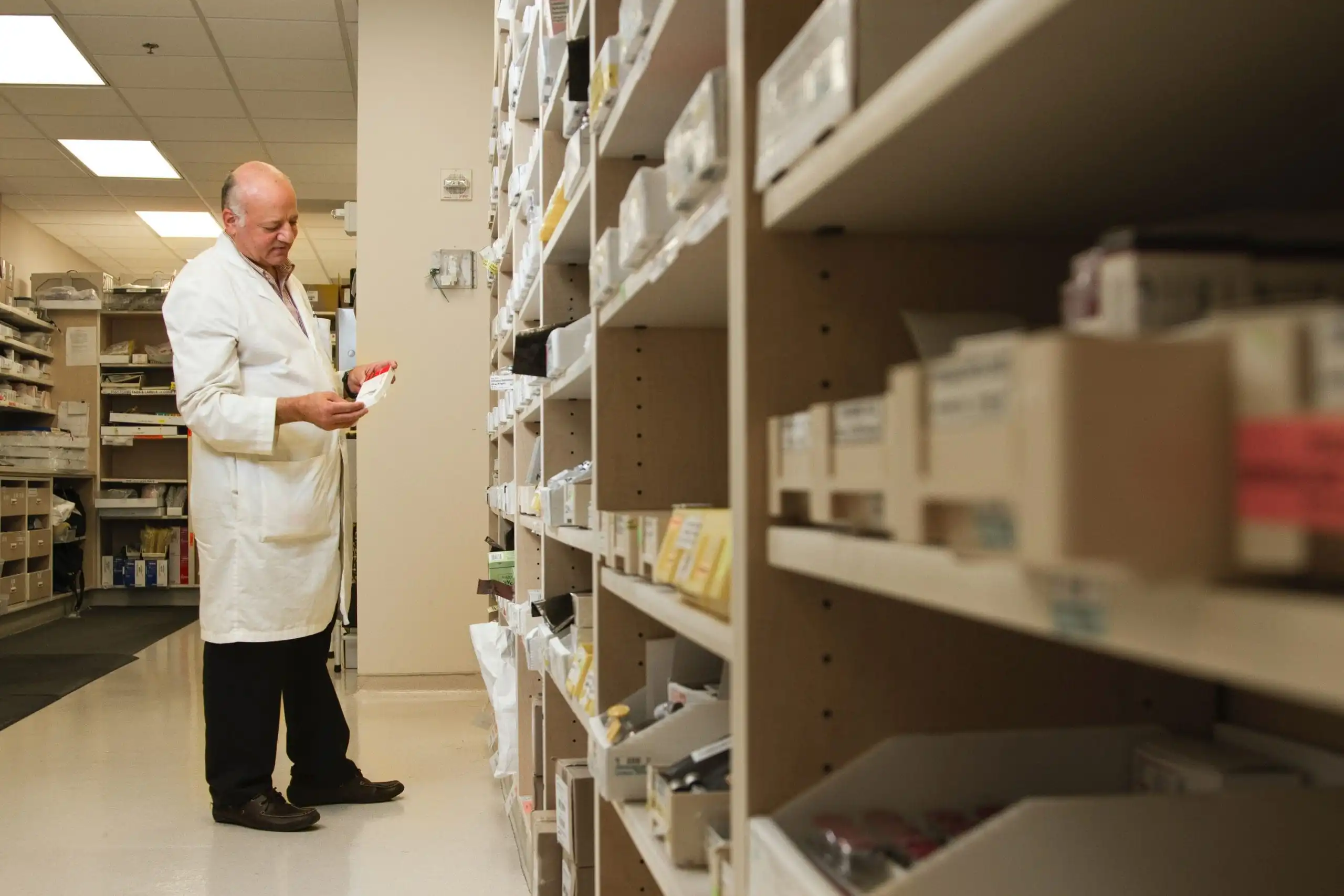
Desiccated thyroid, also referred to as thyroid powder or thyroid extract, is dried thyroid gland that has been processed and converted to a powdered form for medical use.
Commonly created from pig, sheep, or cow thyroid glands, desiccated thyroid extract supplements are used to treat hypothyroidism. Hypothyroidism is a condition where the thyroid gland doesn’t produce enough key hormones required by the body for critical functions that include energy production and metabolism.
Thyroid Powder History
Treatment with thyroid extract goes back to the late 1800s, when George Redmayne Murray, a British physician, first described how severe forms of hypothyroidism could be treated with thyroid extract supplements. After a period of nearly 30 years, his success led to the adoption of thyroid extract as a way to treat hypothyroidism in North America and Europe.
Desiccated thyroid powder was initially created from pig thyroid glands typically discarded by the meatpacking industry. Following the drying process, the glands were then ground to a powder and sometimes combined with binding agents for conversion into a pill format. The treatment became a widely-used option to treat hypothyroidism in 1934 with Westhroid, one of the first branded treatments. This relatively natural option to treat hypothyroidism was standard until the middle of the 20th century before the development of pharmaceutical options such as synthetic thyroxine.

The Thyroid Gland
The thyroid is a butterfly-shaped brownish-red gland that is located at the base part of the neck along the front of the windpipe. Rich in blood vessels, the thyroid gland has two side lobes that are connected by a middle bridge.
The thyroid gland produces hormones to influence energy, metabolism, body temperature, growth and childhood brain development. Of all the hormones produced, thyroxine (also known as T4) provides the primary mechanism of action.
Get your requested raw materials quotation
Hypothyroidism
Hypothyroidism is a condition where an underactive thyroid does not produce enough critical hormones for optimal body function. Symptoms of hypothyroidism may not manifest in the early stages of the disease, however may present themselves in later stages.
Symptoms of hypothyroidism
- Unexplained weight gain
- Chronic fatigue
- Intolerance to cold temperatures
- Constipation
- Dry skin and brittle nails
- Joint and muscle pains
- Decreased breast milk production
- Decreased cognitive function: brain fog, low concentration, poor memory
- Depression, anxiety, moodiness
- Low sex drive
- Premenstrual syndrome, fertility issues
- Hair loss
- Coarse, dry hair
- Snoring, or hoarse voice
- Low heart rate
- Generalized swelling, puffy face
- Sugar and carbohydrate cravings
- High cholesterol
- Irregular sleep patterns
Get your requested raw materials quotation
Hypothyroidism Causes
The thyroid is highly dependent on the overall action of the endocrine system that includes the hypothalamic-pituitary-thyroid axis (HPT). The HPT, along with the hypothalamic-pituitary-adrenal gland axis (HPA), hypothalamic-pituitary-gonadal axis (HPG), and the hypothalamic–neurohypophyseal system make up the four major neuroendocrine systems of the human body.
Referred to as the “master” gland, the pituitary gland is a small pea-shaped structure located at the base of the brain behind the bridge of the nose. The role of the pituitary gland is to transmit messages from the brain (via the hypothalamus) to produce hormones that produce important functions throughout the body.
The HPT axis determines the base, or set point of thyroid hormone production. Hypothalamic thyrotropin-releasing hormone stimulates the secretion and synthesis of thyroid-stimulating hormone, which then directs the thyroid to create thyroid-stimulating hormones.
Some of the leading causes that disrupt this mechanism include:
- High stress levels
- Diets low in iodine and selenium
- Gut inflammation
- Toxin overload
- Medications and related pharmaceuticals
- Medication interactions
- Lack of exercise
Since the thyroid is typically affected by other components of the HPT, it may logically follow that hypothyroidism may be a generalized condition rather than being caused by problems with the thyroid itself.
Other Diseases of the Thyroid Gland
Various conditions that negatively affect the thyroid gland include:
Thyroiditis – inflammation of the thyroid, sometimes caused by a viral infection, medications, or an autoimmune condition
Goiter – a condition where the thyroid increases in size. Goiter may be caused by iodine deficiency or an inflammatory disease called Hashimoto’s thyroiditis
Thyroid cancer – an uncommon type of cancer that is usually curable
Thyroid nodule – a common condition characterized by small abnormal masses or lumps that sometimes secrete excess hormones, causing hyperthyroidism (excess of hormones from an overactive thyroid)
Hyperthyroidism – excessive thyroid hormone production predominately caused by an overactive thyroid nodule (also known as Graves disease)
Thyroid storm – a rare type of hyperthyroidism where abnormally high thyroid hormone levels cause severe disease
Types of Thyroid Tests
There are several ways to test thyroid function that include:
- Anti-TPO antibodies
- Thyroid ultrasound
- Thyroid scan
- Thyroid biopsy
- Testing thyroid-stimulating hormone
- Blood tests for T3 and T4
- Test for thyroglobulin, a substance secreted by the thyroid
- Imaging tests for cancer such as CT, MRI or PET scans
Thyroid Powder Side Effects
Some side effects associated with the use of thyroid powder include appetite changes, menstrual cycle changes, chest pain, digestive issues, heartbeat irregularity, fever, headache, hand tremors, leg cramps, nervousness/irritability, heat intolerance, breathing problems, sweating, sleep issues, and weight loss.
Thyroid Powder FAQ
Desiccated thyroid powder is a medication used to treat hypothyroidism, created by drying animal thyroid glands and converting them to a powdered or pill form.
Compared to pharmaceutical treatments such as synthetic thyroxine, desiccated thyroid is considered to be a more natural option by some health practitioners.
The thyroid gland directs energy production, metabolism, growth, body temperature, and childhood brain development through the production of hormones such as thyroxine (T4)
Desiccated thyroid powder is typically made from pig, sheep, or cow thyroid glands.
Get your requested raw materials quotation
Good Manufacturing Practice (GMP)
GMPs practices are guidelines recommended by agencies that control licensing and authorization of both the manufacture and sale of cosmetics, food, beverages, dietary supplements, medical equipment and pharmaceutical products. They are put into place and enforced to ensure product quality and consistency among manufacturers.
Medica Pharma partners with GMP manufacturers and specialty labs globally to establish and maintain strong professional relationships. This allows us to source and provide the highest quality chemical products on the market.




